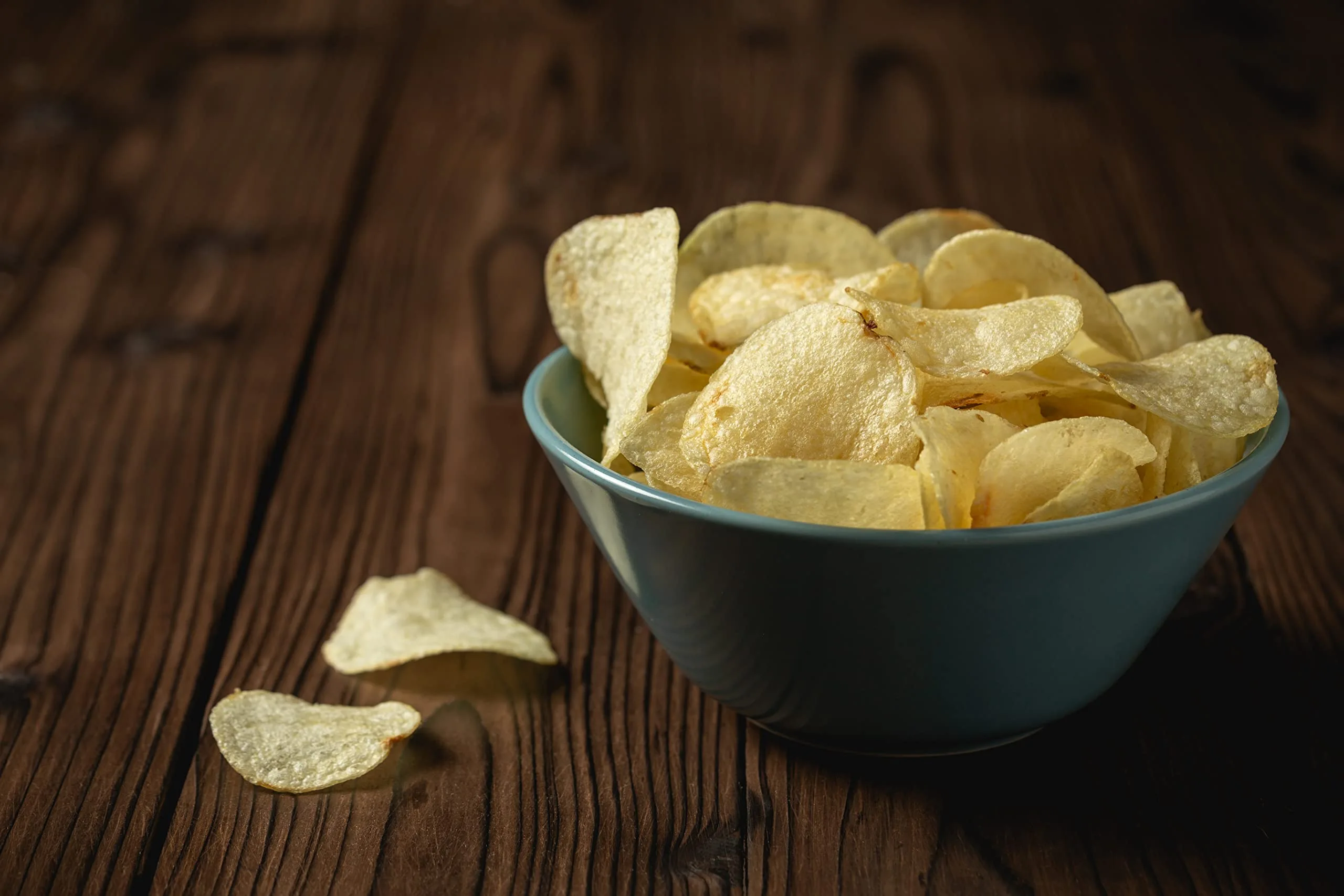Are you looking for a healthier snacking option that doesn’t compromise on taste? Welcome to the world of plant-based diet chips! These crunchy delights are not only delicious but also packed with nutrients. In this guide, we’ll dive deep into everything you need to know about plant-based diet chips, from their benefits to the best brands, and even some fun recipes. Let’s get started on this crunchy journey!
What are plant-based diet chips?
Plant-based diet chips are a healthier alternative to traditional potato chips, made entirely from plant ingredients. These chips can be made from a variety of vegetables, fruits, legumes, and grains. The key is that they contain no animal products, making them suitable for vegetarians, vegans, and anyone looking to eat more plant-based foods.
Also Read: 30 Day Digital Detox Challenge: Transform Your Life in 30 Days
Benefits of Plant-Based Diet Chips
Nutritional Value
Plant-based chips are often richer in vitamins, minerals, and fiber compared to their traditional counterparts. For instance, chips made from sweet potatoes are high in vitamin A, while those made from kale are packed with antioxidants.
Health Benefits
Switching to plant-based chips can help you reduce your intake of unhealthy fats and artificial additives. Many plant-based chips are baked instead of fried, which means they contain less oil and fewer calories.
Different Types of Plant-Based Chips
Vegetable Chips
These are made from thinly sliced vegetables like sweet potatoes, beets, carrots, and kale. They are often baked or dehydrated to retain their nutrients.
Fruit Chips
Fruit chips, such as apple or banana chips, are naturally sweet and make for a great healthy snack. They are typically dried or baked to achieve a crunchy texture.
Legume Chips
Legume chips include varieties like chickpea or lentil chips. These are high in protein and fiber, making them a satisfying and nutritious snack option.
Grain Chips
Grain chips are made from whole grains like quinoa, brown rice, or corn. They are a great source of complex carbohydrates and fiber.
Popular Brands of Plant-Based Chips
Overview of Popular Brands

Brands like Terra, Bare Snacks, and Siete Foods have made a name for themselves in the plant-based chip market. Each brand offers a unique twist on plant-based snacking, using different ingredients and flavor profiles.
Comparison of Taste and Quality
While Terra Chips are known for their vibrant vegetable mixes, Bare Snacks excel in offering simple, fruit-based chips with no added sugars. Siete Foods, on the other hand, is famous for its grain-free tortilla chips made from cassava and coconut flour.
Homemade Plant-Based Chips
Benefits of Making Your Own
Making your own plant-based chips at home ensures that you know exactly what goes into them. It’s a cost-effective way to enjoy healthy snacks without any preservatives or artificial ingredients.
Basic Recipes and Methods
Sweet Potato Chips: Thinly slice sweet potatoes, toss with a bit of olive oil and sea salt, and bake at 400°F for about 20 minutes, flipping halfway through.
Kale Chips: Tear kale leaves into bite-sized pieces, massage with olive oil, sprinkle with nutritional yeast and bake at 300°F for 10–15 minutes until crispy.
How to Choose the Best Plant-Based Chips
Reading Labels
When shopping for plant-based chips, always read the labels. Look for chips that are minimally processed, with no artificial additives or preservatives. Ingredients should be simple and recognizable.
Identifying Healthy Ingredients
Opt for chips made with whole food ingredients. Avoid those with excessive amounts of sodium or sugar. Ingredients like olive oil or avocado oil are better choices compared to refined vegetable oils.
Plant-Based Chips vs. Traditional Chips
Nutritional Comparison
Traditional potato chips are often high in unhealthy fats and calories, while plant-based chips offer more nutrients per serving. For example, a serving of kale chips provides vitamin K and antioxidants, whereas regular chips offer little nutritional value.
Taste and Texture Differences
Plant-based chips can vary greatly in taste and texture. While they might not have the same greasiness as traditional chips, they offer a wide range of flavors and satisfying crunches. It’s all about finding your favorite!
Are Plant-Based Chips Truly Healthy?
Potential Drawbacks
Despite their health benefits, plant-based chips can still be high in calories and fat if consumed in large quantities. It’s important to enjoy them in moderation as part of a balanced diet.
How to Enjoy Them in Moderation
Pair plant-based chips with healthy dips like hummus or guacamole to enhance their nutritional value. Remember, moderation is key to maintaining a healthy diet.
Recipes Using Plant-Based Chips
Creative Snack Ideas
- Chip and Veggie Dip Platter: Serve an assortment of plant-based chips with a variety of dips like hummus, salsa, and guacamole.
- Chip Salad Toppers: Crumble your favorite plant-based chips over salads for added crunch and flavor.
Incorporating Chips into Meals
- Taco Toppings: Use grain-free tortilla chips as a crunchy topping for tacos.
- Soup Garnishes: Add a handful of veggie chips to soups for extra texture and taste.
Kid-Friendly Plant-Based Chips
Benefits for Children
Plant-based chips can be a great way to introduce kids to more vegetables and fruits. They are a fun and tasty snack that can help children develop healthier eating habits.
Fun and Tasty Options
Kids love colorful and flavorful snacks. Offer them sweet potato chips or apple chips as a delightful alternative to regular chips. These can be made more appealing with fun shapes and dips.
The Environmental Impact of Plant-Based Chips
Sustainability Factors
Many plant-based chips are made with sustainably sourced ingredients and eco-friendly packaging. This makes them a better choice for the environment compared to traditional chips.
Eco-Friendly Packaging
Look for brands that use recyclable or biodegradable packaging. This helps reduce the environmental footprint of your snacks.
Plant-Based Chips in the Market
Market Trends
The demand for plant-based snacks is on the rise, with more consumers seeking healthier and more sustainable options. This trend is reflected in the growing variety of plant-based chips available in stores.
Consumer Preferences
Consumers are increasingly looking for snacks that offer health benefits without compromising on taste. Plant-based chips fit perfectly into this niche, offering a delicious and nutritious alternative to traditional snacks.
Future of Plant-Based Snacking
Innovations and Developments
The plant-based snack industry is continuously evolving, with new and innovative products being developed regularly. From new flavors to improved nutritional profiles, the future looks bright for plant-based snacking.
Predictions for the Future
As more people adopt plant-based diets, the popularity of plant-based chips is expected to grow. We can anticipate more variety, better taste, and increased availability in the coming years.
Conclusion
In conclusion, plant-based diet chips are a fantastic snack option for anyone looking to enjoy a healthier lifestyle. They offer numerous health benefits, a wide range of flavors, and are often more environmentally friendly than traditional chips. Whether you buy them from the store or make them at home, plant-based chips are a delicious and nutritious choice.
FAQs
Are plant-based chips suitable for vegans?
Yes, plant-based chips are made entirely from plant ingredients and are suitable for vegans.
Can I make plant-based chips at home?
Absolutely! Making your own plant-based chips at home is easy and allows you to control the ingredients.
Are plant-based chips healthier than regular chips?
Generally, yes. Plant-based chips often contain more nutrients and fewer unhealthy fats compared to regular chips.
What are some popular brands of plant-based chips?
Some popular brands include Terra, Bare Snacks, and Siete Foods.
Do plant-based chips have a long shelf life?
Yes, most plant-based chips have a shelf life similar to regular chips, especially if they are properly sealed and stored.




